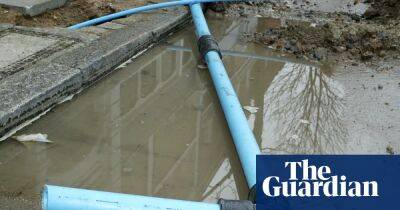‘Very sensitive subject’: plan to take Welsh water for London stirs painful memories
O n a February night 60 years ago, three young men battled through blizzard conditions to plant a bomb at a construction site in a lonely Welsh valley. Their target was a dam being built by an English privatised water company to supply water for Liverpool.
To provide million of litres a day for the English city, the people in the small Eryri (Snowdonia) village of Capel Celyn were to be evictedand their homes, farms, post office, school, chapel and cemetery flooded to create a reservoir.
The bomb attack by the newly formed Mudiad Amddiffyn Cymru (Movement for the Defence of Wales) on the electricity transformer powering the development on 9 February 1963 was an act born of intense opposition to the village drowning; people boarded buses to Liverpool to march through the streets.
Despite the protests, in October 1965 Alderman Frank Cain, of the Corporation of Liverpool, pulled a lever to sink Capel Celyn for ever under tens of millions of litres of water to create the Llyn Celyn reservoir.
Today, as climate breakdown pushes more regions into drought conditions, privatised water companies are again turning to Wales for more water – this time for London and the south-east of England.
Thames Water wants to abstract up to 155m litres of water a day from Wales to boost supplies for the most populous part of England in the coming years. It is working with United Utilities, which has a licence to abstract water from Lake Vyrnwy, a reservoir in Powys, and with Severn Trent. But as the graffiti across north Wales in memory of Capel Celyn show, water continues to be an emotive subject in the country.
Politicians in Powys are arming themselves for tough negotiations on access to water in the years ahead. The county council wants the
Read more on theguardian.com



















